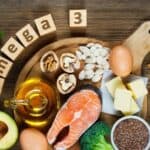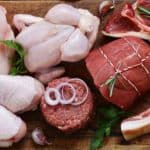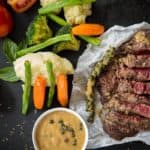A lot of times, when people try to lose unwanted fat, they end up shedding muscle mass. It sometimes even results in increased body fat percentages in certain cases. Why? They believe in consuming surplus calories for gaining weight & a calorie deficit for losing weight, which is completely opposite concepts. It is true when you refer to the total weight of your body as one.
As you consume fewer calories compared to the number you burn each day, your body goes into the mode of putting your muscle health on a back burner. When you diet, your muscular tissue becomes less sensitive to the amount of protein you consume. Resultantly, your muscles tend to decrease the process of amino acid absorption from your bloodstream. Every day our muscle cells shed proteins that get replaced by healthy ones by our bodies, naturally. When the new amount isn’t adequate, our bodies tend to lose muscles drastically.
Strive for Losing Fat not Weight
People talk about losing weight, but mostly that isn’t what they mean. What they mean is getting rid of unwanted fat. Lose weight usually refers to losing fat & muscles. Your body can get smaller by this, but the shape will not apparently change. You won’t get the athletic physique. Because that’s done by muscle definition, & that is you should not run after losing weight but fat.
Though many people claim that you can’t lose fat and gain muscle simultaneously, that is not true.
Body Composition & Recomposition
Body composition refers to the fat-mass ratio. Fat percent is your body is just a part of the overall composition while mass is other. Which includes your muscle, bones, tendons, ligaments organs, body tissues & water. Body recomposition is the process of interfering with your ratio of fat mass to ratio. Which most people do for losing fat & gaining muscle mass.
Muscle tissue is naturally denser than your fat tissue. The more muscle you gain, the more you weight even if it is losing your fat simultaneously. But what really changes, is the physique. When you undergo body recomposition, you start noticing apparent changes in your body, you start to look overall firmer in your body building clothes.
Lose Fat and Gain Muscle Mass
Gaining muscle and burning fat simultaneously can be tricky, but it’s possible here are the most effective ways of doing it.
1. Consume more Protein
Don’t hesitate in pumping up your protein consumption. Increase your protein intake up to 1.5-2 grams per pound of your total weight per day. Taking more proteins, fairly distributed in your everyday’s meal, helps in protecting the muscle fibers from breakdown. Moreover, a protein-rich diet positively impacts the number of calories that you burn each day.
2. Cut down on your cardio
For losing fat and gaining muscle best practice you can do is to focus on high-intensity interval exercises. A Lot of cardio workouts lead to the loss of lean tissue. These workouts primarily work for burning calories, they can make your body burn muscle tissue that body fat while you practice them in your body building clothes.
3. Consume Healthy Fats
A Lot of people outrageously cut their fat consumption for reducing their body fat. Which results in not only weight loss but hair loss, poor skin condition, and nails. Fats play a significant role in maintaining your overall cell structure & regulating your hormone level. Which are vital for providing a muscle-gaining environment. They certainly affect the way you feel. Consume up to half a gram of healthy fats for each pound of your body weight per day.
4. Do Strength Training Minimum Three Times a Week
Incorporate minimum of 2 days of weight training per week for maintaining your muscle mass & 3 or more times for building muscle mass. Fit these workouts followed by the right cardio exercises in your routine.
5. Cut Down Your Carbs
Consume your carbs on the time they benefit the most 2 hours prior to your workout & right after working out. The remaining carbohydrates should come from vegetables. They help in boosting your energy levels and shaving off hunger. A good place is to start at 1.5g carbs per pound of your body weight. and on your non-training days, drop down your carb consumption up to 0.75-1.0g per pound.







